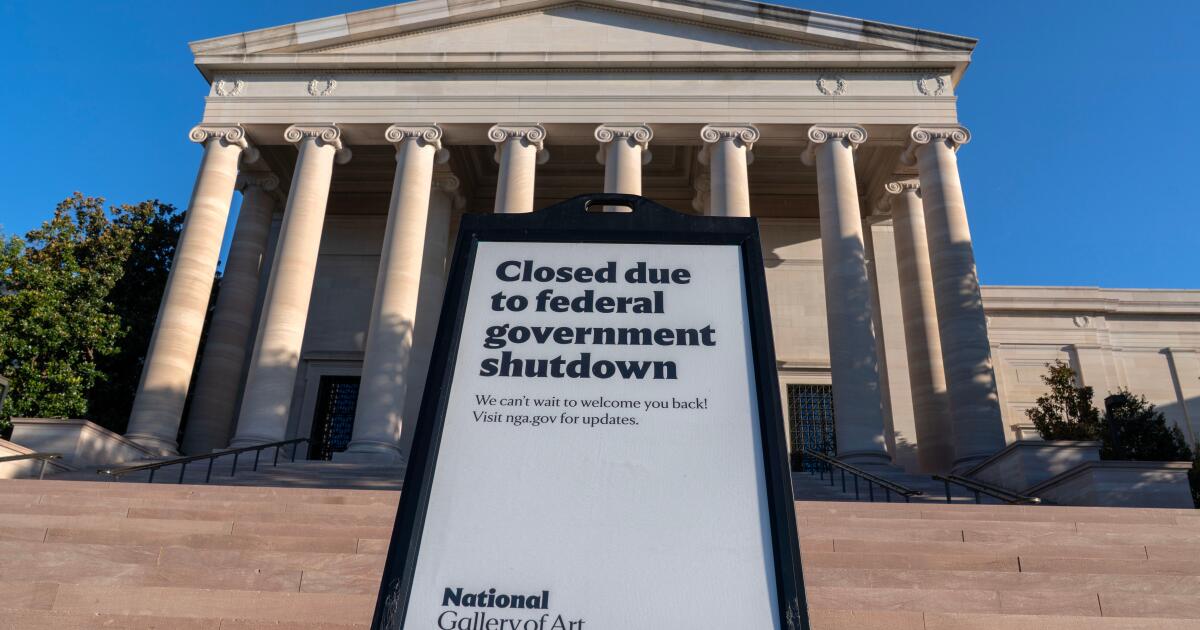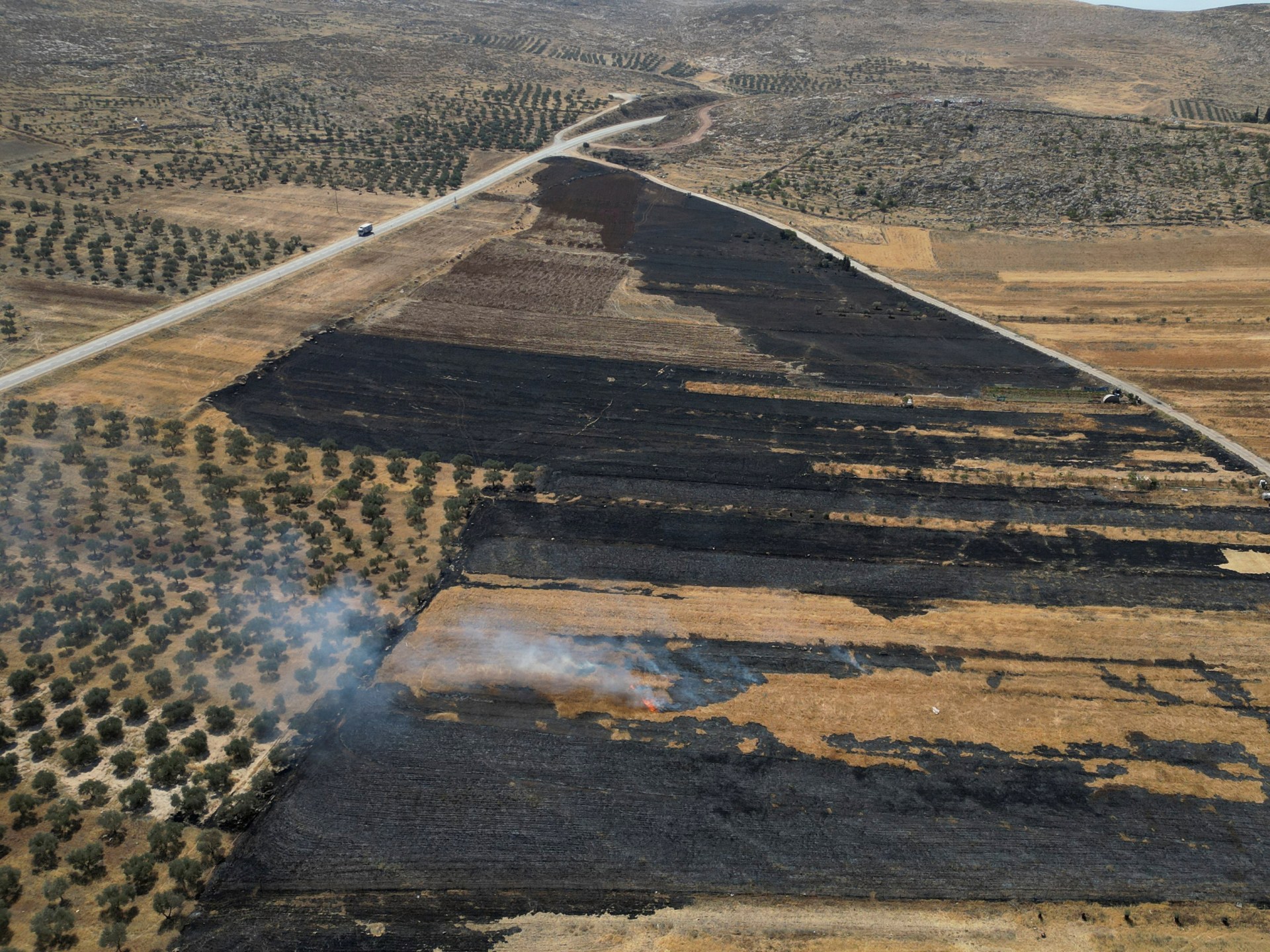Federal shutdown stalls California’s legal battles with Trump
Days before the Trump administration was supposed to file its response to a California lawsuit challenging its targeting of gender-affirming care providers, attorneys for the U.S. Justice Department asked a federal judge to temporarily halt the proceedings.
Given the federal shutdown, they argued, they just didn’t have the lawyers to do the work.
“Department of Justice attorneys and employees of the federal defendants are prohibited from working, even on a voluntary basis, except in very limited circumstances, including ‘emergencies involving the safety of human life or the protection of property,’” they wrote in their filing Oct. 1, the first day of the shutdown.
The district judge presiding over the case, which California filed in federal court in Massachusetts along with a coalition of other Democrat-led states, agreed, and promptly granted the request.
It was just one example of the now weeks-old federal shutdown grinding to a halt important litigation between California and the Trump administration, in policy battles with major implications for people’s lives.
The same day, in the same Massachusetts court, Justice Department attorneys were granted a pause in a lawsuit in which California and other states are challenging mass firings at the U.S. Department of Education, after noting that department funding had been suspended and it didn’t know “when such funding will be restored by Congress.”
The same day in U.S. District Court in Central California, the Trump administration asked for a similar pause in a lawsuit that it had brought against California, challenging the state’s refusal to provide its voter registration rolls to the administration.
Justice Department attorneys wrote that they “greatly regret any disruption caused to the Court and the other litigants,” but needed to pause the proceedings until they were “permitted to resume their usual civil litigation functions.”
Since then, the court in Central California has advised the parties of alternative dispute resolution options and outside groups — including the NAACP — have filed motions to intervene in the case, but no major developments have occurred.
The pauses in litigation — only a portion of those that have occurred in courts across the country — were an example of sweeping, real-world, high-stakes effects of the federal government shutdown that average Americans may not consider when thinking about the shutdown’s impact on their lives.
Federal employees working in safety and other crucial roles — such as air traffic controllers — have remained on the job, even without pay, but many others have been forced to stay home. The Justice Department did not spell out which of its attorneys had been benched by the shutdown, but made clear that some who had been working on the cases in question were no longer doing so.
Federal litigation often takes years to resolve, and brief pauses in proceedings are not uncommon. However, extended disruptions — such as one that could occur if the shutdown drags on — would take a toll, forestalling legal answers in some of the most important policy battles in the country.
California Atty. Gen. Rob Bonta, whose office has sued the Trump administration more than 40 times since January, has not challenged every request for a pause by the Trump administration — especially in cases where the status quo favors the state.
However, it has challenged pauses in other cases, with some success.
For example, in that same Massachusetts federal courthouse Oct. 1, Justice Department attorneys asked a judge to temporarily halt proceedings in a case in which California and other states are suing to block the administration’s targeted defunding of Planned Parenthood and other abortion providers.
Their arguments were the same as in the other cases: Given the shutdown, they didn’t have the attorneys to do the necessary legal work.
In response, attorneys for California and the other states pushed back, noting that the shutdown had not stopped Department of Health and Human Services officials from moving forward with the measure to defund Planned Parenthood — so the states’ residents remained at imminent risk of losing necessary healthcare.
“The risks of irreparable harms are especially high because it is unclear how long the lapse in appropriations will continue, meaning relief may not be available for months at which point numerous health centers will likely be forced to close due to a lack of funds,” the states argued.
On Oct. 8, U.S. District Judge Indira Talwani denied the government’s request for a pause, finding that the states’ interest in proceeding with the case “outweighs” the administration’s interest in pausing it.
Talwani’s argument, in part, was that her order denying a pause would provide Justice Department officials the legal authority to continue litigating the case despite the shutdown.
Bonta said in a statement that “Trump owns this shutdown” and “the devastation it’s causing to hardworking everyday Americans,” adding that his office will not let Trump use it to cause even more harm by delaying relief in court cases.
“We’re not letting his Administration use this shutdown as an excuse to continue implementing his unlawful agenda unchecked. Until we get relief for Californians, we’re not backing down — and neither are the courts,” Bonta said. “We can’t wait for Trump to finally let our government reopen before these cases are heard.”
Trump and Republicans in Congress have blamed the shutdown on Democrats.



